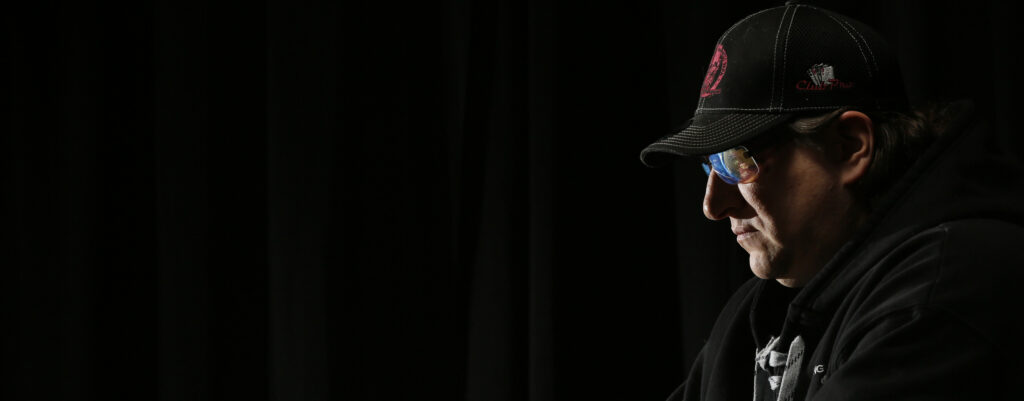The Curiosity Leak

Written by Sasha Sutton
We call when we’re beat cause we need to know or have to see. Or the calling player asks, “Will you show if I fold?” Another classic profit-killer: “Consider this a donation to your stack.” In low-stakes live cash what does curiosity deliver? How does the force of ego tangle these moments when folding seems out of reach?
Poker is ruthless and for some, the “not knowing” can feel overwhelming, giving rise to elaborate bad-beat narratives told to anyone who will listen. In real terms, rash calls long term destroy win-rates and bankroll not to mention ensuring a chronic hit to the health of your mindset. Call it a curiosity leak. Cause it is.
Bluffed by greed
The intersection of greed and curiosity is real. Lots of cash players seem to believe they should win every hand played and bemoan any pot pushed elsewhere. The crooked state of mind and self-talk informing this quiet craving? I want and need to win. I hate being bluffed. Poker is free money and those chips are enticing and should be mine. Yet as traders know, “The market doesn’t owe you a Cadillac.” When you’re focused on superior decisions, winning is never the point.
And like any addiction, misery follows joy. You see a villain’s hand and get relief. Soon you feel stupid cause you lost money. You berate yourself. Tilt scrambles the brain. Hoping to recoup you get splashy. More hands go terribly wrong. None of it is pleasant.
Watch veteran players. Their rhythms are elegant as they win and lose with tremendous grace. Greed is less a force cause betting lines are often mapped from the flop forward. By default they’re not generally agonizing over rivers cause hand-planning removes lots of guesswork. (Notice a skilled player flawlessly execute, say, AK on a whiffed flop.) With internal scripts in place relative to position, number of players in the hand and more, decisions become more automatic and strategic. Curiosity is purged.
Instinct and the gym
Instinct in poker is all. Your A-game is defined by moving toward, or away from, that instinct in each hand you play. When you fold the right spots, you strengthen mindset muscle — in a word, you do mindset reps. Playing well doesn’t mean having perfect answers. It means more off-table study and less doubt so you’ll stop agonizing about whether to call with a set against a straightened board. It means knowing a ton of familiar situations like clockwork cause instinct has become your BFF and your flopped two-pair on a dripping-wet board will not likely hold.
Ideally your folds also happen with lightning speed, especially when your villain’s sizing reveals just how crushed you are. (Fast-folding is yet another skill you can build that offers superb deception.) Even the wildest Moby Dicks of the sea are rarely committing river chips weaker than two-pair. TAGs and rocks making large aggressive (turn and river) bets are (close to) nutted. Let’s say always.
Fold for love (of superior ROI)
Ditch the compulsion to verify. Poker is made complex by incomplete information. Folding well is one of the highest, hardest acts in the game. From a mindset perspective, when you do it with zero regret, you win the biggest bear at the fair. Folding is also exploitative. You deny access to your stack. You preserve chips which is just as thrilling as winning more of them.
Curiosity encourages loss and sadness. It can and should be resisted cause it’s the opposite of fun and should be driven out of your playing style and betting vocabulary. Plus the bear question. When you win it, the kid in you will feel ecstatic and cool.





Responses